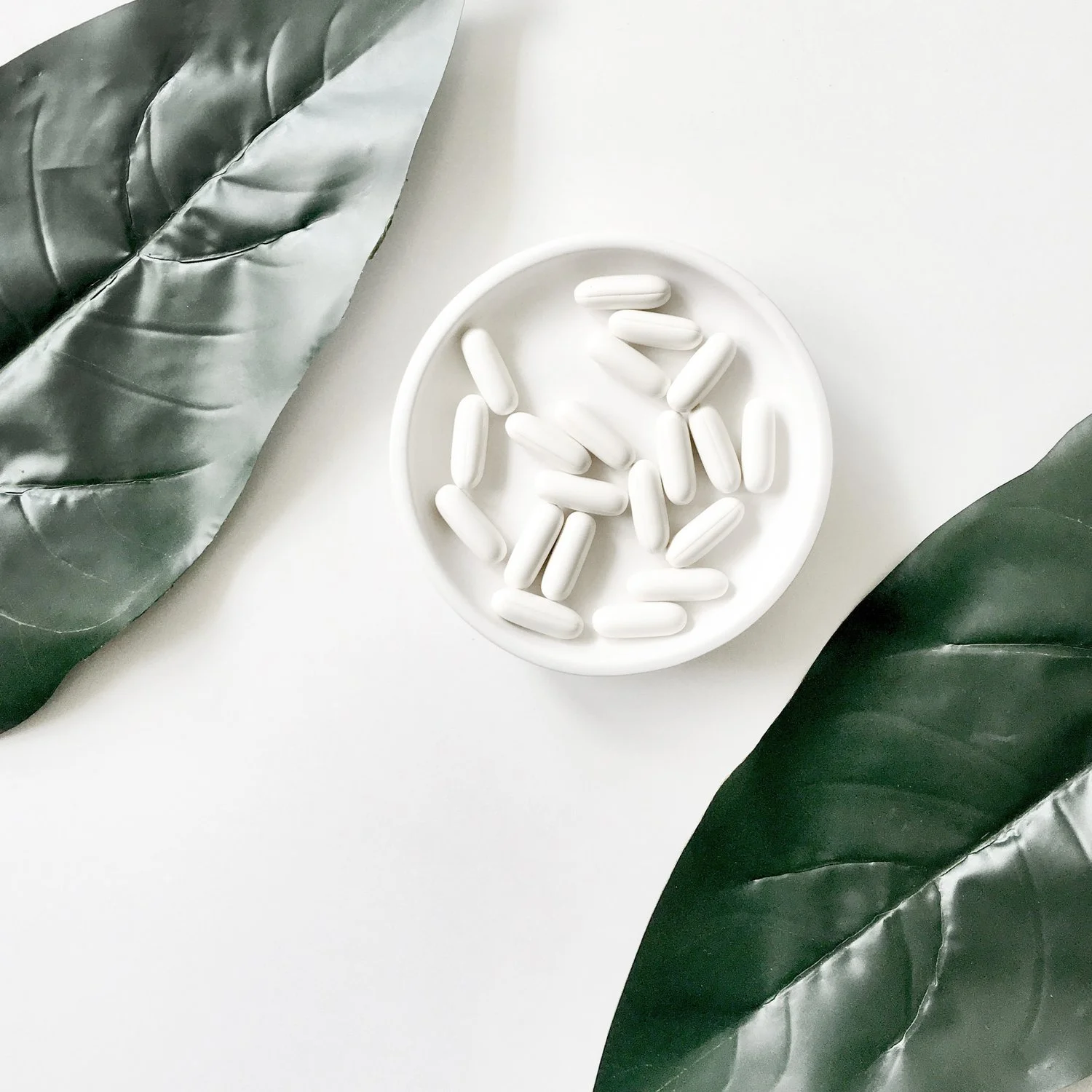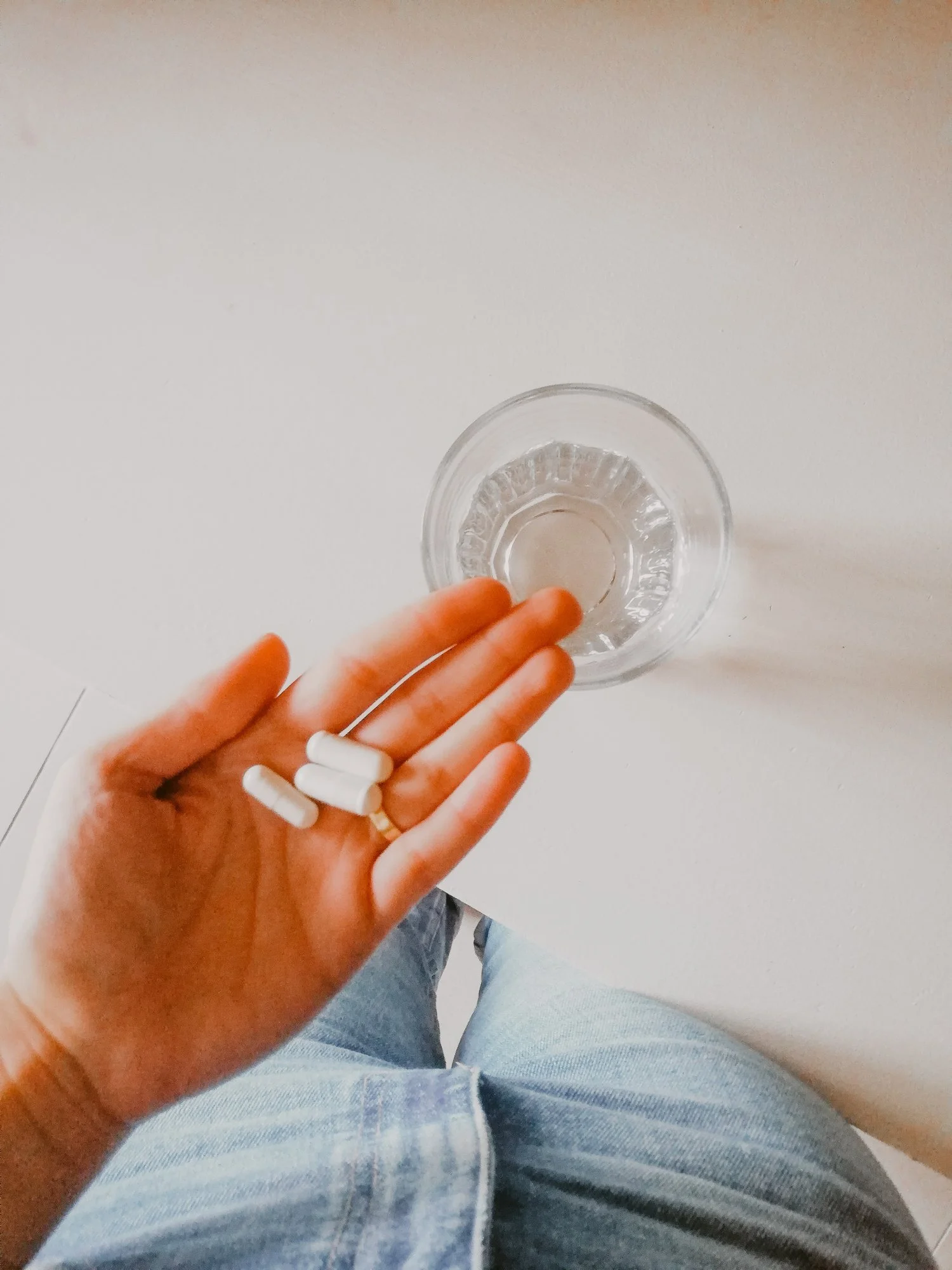Probiotics 101: The 3 Types You Need to Know About + How to Choose the Best One for You
Probiotics are all the rage these days. With studies showing they can help boost your immune system, reduce leaky gut, regulate your bowel movements, impact your mental health, and even improve your skin health — it's no wonder they’re hot hot hot 🔥
The thing is, the world of probiotics can also be hugely confusing; there's so much information out there to sift through.
If you're feeling this way, you're not alone 👋
You might be wondering, what is a probiotic? What does it do? And most importantly for our purposes here, how do you know which probiotic is best for YOU?
This article is going to dig into all your most pressing questions about probiotics, and help you make the decision about which one may (or may not) be right for you and your needs.
Let's dive in.
What are probiotics anyway?
The term "probiotic" is used to describe any live microorganism (usually bacteria or yeast) that has a positive influence on the body. These microbes have an essential role in maintaining digestive health, producing certain nutrients, protecting us against pathogens, manufacturing neurotransmitters, supporting our immune system, and more 😍
“Probiotics” can be found in supplement form (usually in a powder or capsule), or can be found in naturally fermented foods. Different probiotics provide the body with different benefits.
The most common probiotics you'll find in supplements are Lactobacillus and Bifidobacterium (if you have a probiotic at home, you’ll likely see these ones listed on the back!). In this article, we’re going to be diving deeper into these common probiotics, as well as two other kinds that you might not be aware of!
3 Types of Probiotics (you need to know about)
1. Lactic Acid Producers
These are your lactobacillus (otherwise known as LAB, or lactic acid bacteria) and bifidobacterium species! You might be familiar with these — they’re some the most common of conventional probiotics. These tend to be the species that you’ll find in multi-strain probiotics, as well as dairy products and fermented foods.
Lactobacillus species are one of the first group of microbes to inoculate the gut after birth (it’s the dominant bacteria in the vaginal microbiome).
These probiotics — especially species from the lactobacillus and Bifidobacterium genus’ — have many health benefits, some of which include:
producing vitamins (like B vitamins’ folic acid, biotin and thiamine)
promoting the growth of other beneficial species found in the microbiome (cool!)
creating antimicrobial byproducts to prevent opportunistic flora from overgrowing
stimulating intestinal immunity
influencing and stabilizing intestinal peristalsis (the wave-like motion in the smooth muscle of the intestine that allows us to have a bowel movement)
they are antagonistic of some pathogenic and opportunistic species
can help us digest lactose (the sugar found in dairy products)
producing short-chain fatty acids
These probiotics are great to provide us with a variety of health benefits, and can be used to help “reseed” a microbiome that might’ve been compromised (perhaps due to digestive dysfunction, medication or antibiotic use, etc.).
2. Yeast Based (Fungal) Probiotics
This probiotic, saccharomyces boulardii, is a single-stain, yeast-based probiotic. When we think of “yeasts” as it relates to the microbiome, we might often think of Candida, which is an opportunistic species of yeast that can overgrow in the microbiome, contributing to a variety of symptoms. Saccharomyces boulardii however, is a really beneficial yeast species.
S. boulardii has a number of benefits:
its been shown to help reduce diarrhea (in acute cases, and IBS-D)
it can reduce inflammation in the intestinal tract
boosts intestinal secretion of Secretory IgA (SIgA)
inactivates bacterial toxins
supports a healthy mucosal barrier
inhibits the growth of opportunistic bacteria and parasites, and reduces the translocation of pathogenic species (translocation referring to how bacteria can move from location to another in the body!)
This is a great probiotic to lean on for folks who struggle with diarrhea (while also looking into the root-cause behind the diarrhea!), and potentially in conjunction with eradication protocols for infections like H. Pylori, or a microbiome restoration protocol.
3. Spore Based Probiotics (Soil Based Organisms)
Spore-based probiotics differ from lactic acid-producing bacteria and yeast-based probiotics, in that they are soil-based organisms, found in nature (soil and vegetation). Spore-based strains — from the genus Bacillus — are encapsulated in “endospores,” a protective coating that protects them from harsh environments, and allows these microbes to reach the intestines, where they can provide us with health benefits.
Here are some of the cool things spore-based probiotics can do for us:
they help maintain a healthy intestinal barrier
promote healthy gut-associated immune function
can aid in protein digestion
produce vitamins and nutrients (like B vitamins, K2, carotenoids, lycopene, beta-carotene, and more)
promotes microbial diversity in the gut microbiome
These probiotics are particularly helpful when the intestinal barrier has been compromised (which can impact gut-associated immune function), as well as in the restoration of a healthy microbiome.
How to Choose the Best Probiotic for you
So now that you know a little more about the different types of probiotics — you might be wondering, “Well, which one is right for me?”
The first thing I want to mention is this: I don’t believe that everyone needs to take a probiotic.
🤯
Probiotics can be expensive, and as an industry, it’s like the wild west — many products are unregulated and untested.
As a gut health nutritionist, I believe that so long as you’re feeding your beneficial flora with prebiotic fibers, polyphenols, a diversity in plant foods, and consuming fermented foods frequently, and that you have healthy digestive function (no complaints) — they’re not really necessary.
Probiotics are great when they’re used to target specific imbalances or concerns (especially when we can see what’s happening in the microbiome with testing like the GI MAP stool test), or in specific scenarios (ie. after taking antibiotics, when traveling abroad, etc.).
That being said — if you’re looking for a probiotic to take, I’m not here to deter you from them! They can be a great tool to support good gut health.
I would encourage you to take inventory of your health — are you dealing with specific digestive concerns? Or other health concerns occurring elsewhere in the body? Are you looking for more general support, or a targeted purpose?
These questions can help narrow down which type of probiotic might be best for you, and where you’re at right now. Keeping that in mind, review each probiotic type above, and choose which one best suits you and your current situation!
As always, I recommend reaching out to your practitioner to see which one of these (if any), might be the best option for you. Probiotics are not a one-size-fits all — what works for someone, might not work for you — each person's microbiome is as unique as their fingerprint!
What if Probiotics Don’t Work for Me?
If you’re struggling with your digestive health, or even with ‘extra-intestinal’ symptoms (things like hormonal imbalances, low energy, brain fog, skin issues, anxiety, etc.), and you’ve tried probiotics and find that they either aren’t working for you, or are potentially exacerbating your symptoms, it could be time to dig deeper into what’s going on for you!
I want to reiterate, that no one probiotic is going to be the right fit for everyone — so it could be that the probiotic you’re taking doesn’t agree with your biology, but diving deeper into your microbial populations and digestive function could shed some light as to why!
In practice, I run the GI MAP stool test on my clients to help us gain a better understanding of what the population of their gut microbiome looks like, as well as measure a number of intestinal health markers.
If you’re struggling with your gut health, diving deeper into what’s going on through a functional test like this might be a good move!
If you’d like to learn more about the GI MAP, and how I help my clients overcome their digestive concerns via an investigative, root-cause approach, you can click here.

